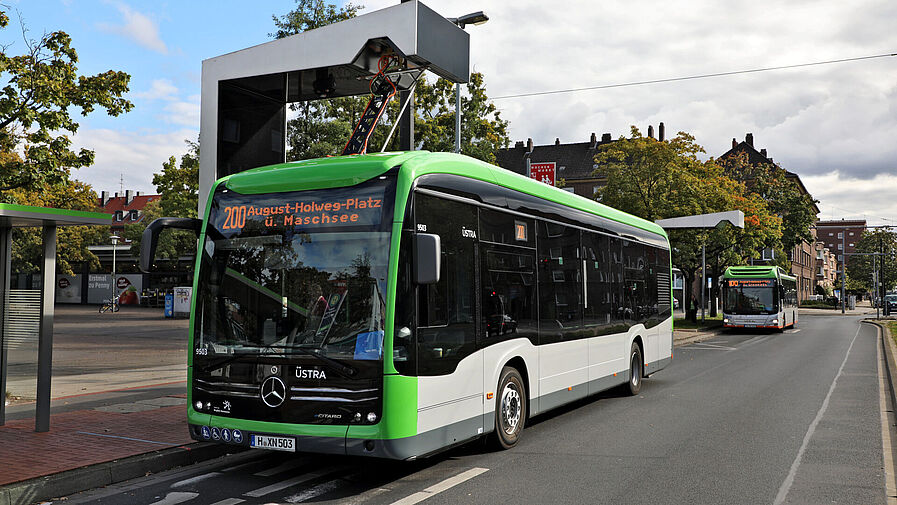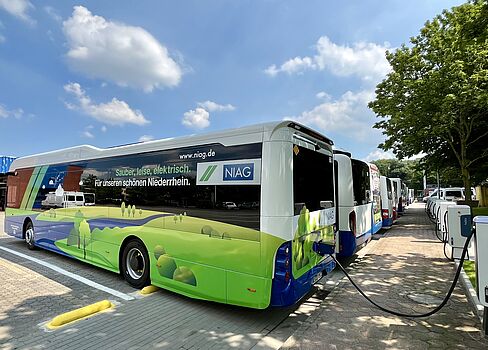Control of charging infrastructure improves availability of electric buses
Berlin, July 4, 2024 - ÜSTRA Hannoversche Verkehrsbetriebe AG has commissioned PSI Transcom GmbH with the delivery of the PSIsmartcharging load and charging management system. This will ensure the availability of the electric buses and contribute to minimize energy costs, optimizing maintenance and improving fault management. Thus, PSI is significantly supporting ÜSTRA in its goal of operating entirely emission-free public transport in the region by 2035.

As part of ÜSTRA's electric bus initiative launched in 2020, the depots equipped with modern charging infrastructure and opportunity chargers will be efficiently monitored and controlled by PSIsmartcharging. The system ensures the availability of electric vehicles and, if necessary, shifts the charging processes or reduces charging power to avoid energy supply bottlenecks. For prolonged battery life, charging processes are managed in a cell-friendly manner.The target State-of-Charge is specified by the user in the depot management system and automatically transferred to the system.
PSIsmartcharging is scalable to include additional depots and charging points and can be connected to the charging technology of different charging station manufacturers. Moreover, it features interfaces to third-party systems such as depot management or ITCS systems and supports access to vehicle data according to the VDV interface 261. The PSI system architecture meets all necessary requirements for KRITIS-compliant operation.
ÜSTRA operates the light rail as well as the city bus network in the Hannover region. With 142.8 million passengers in 2022, it is the leading local transport provider in Lower Saxony.
The PSI Group develops software products for optimizing the flow of energy and materials for utilities and industry. As an independent software producer with more than 2,300 employees, PSI has been a technology leader since 1969 for process control systems that ensure sustainable energy supply, mobility and production by combining AI methods with industrially proven optimization methods. The innovative industry products can be operated on-premises or in the cloud.



